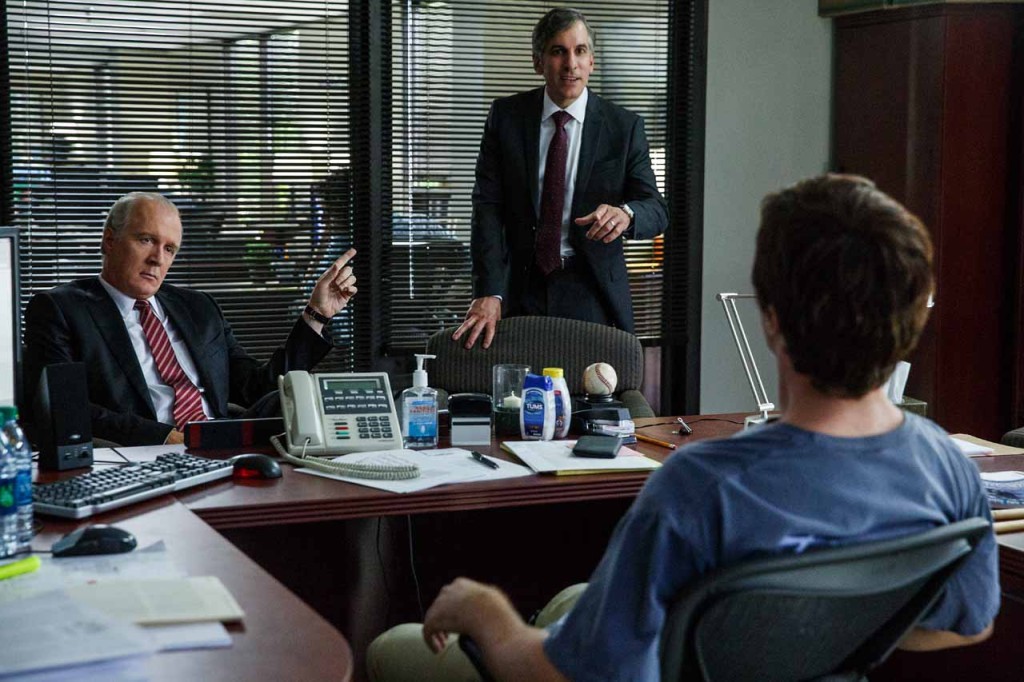Category: Addiction (Page 2 of 5)
 Humanity can live without success but we cannot live without meaning – Richard Rohr
Humanity can live without success but we cannot live without meaning – Richard Rohr
When life hits you where it hurts, when something knocks you off your feet, pulls the rug out from under you and turns your life upside down, it is then that the things that really matter become crystal clear to you again.
It is said by wise people that love brings clarity. I have found that to be true. And something else that brings clarity is suffering. It is only through suffering that we grow, that we come to a knowing in our heart and not just intellectually that things like relationship and meaning are what really matter and that everything else is just superficial.
This is a major reason why I remain a person of Christian faith. The Christian movement was birthed in suffering; Jesus was known as a man of sorrows, acquainted with grief. Being Christian and seeking to grow in my faith makes sense to me when nothing else does. It allows me to have joy (not happiness) within suffering.
Our greatest lessons in life are learned in suffering. We don’t learn that in our daily interactions with our culture. Our leaders talk about being successful and winning, and our advertising is deliberately targeted to make us perpetually dissatisfied with what we have in life. But it was the Apostle Paul, writing from prison, who said that he had learned what it is to be content whatever the circumstances.
Why was it that those first followers of the man of sorrows, people like Paul, Peter and James, repeatedly talked about joy when they were beaten, lashed, imprisoned and tortured for refusing to budge from their way of life? They were people who were living in what Richard Rohr calls the second half of life. They knew through their suffering what really mattered. They were able to count it a privilege to suffer for what was called ‘The Way’. They were able to count it all joy when they faced trials of all kinds. That idea is lost on us in a society that values comfort and ease and feeling good above most everything else. But that brings its own suffering as addiction runs rampant as we want to feel all we can and are made to believe that more and better will give us what we want.
A few months ago I walked down the Via Dolorosa in Jerusalem. The Way of the Cross as it is called is the path that Jesus carried his cross to his crucifixion. John’s gospel says that Jesus’ crucifixion was when he was glorified. This is another idea that is lost on an affluent society. But it is the only way to life. That is why Jesus, surely knowing what lay ahead of him, said earlier in his ministry that anyone who would come after him must deny themselves, take up their cross and follow him. It is why Paul later said that anyone who follows Jesus will be persecuted.
Relationship and meaning in life are what ultimately matter. Suffering is the key that unlocks these truths.

A movie which has the calibre of actors like George Clooney and Julia Roberts is one that usually gets my attention. And the fact that I am writing a review of it means that my hunches about the quality of this movie were not unfounded.
[pullquote]Money Monster is a critique of a society that has become numb to the influences of social media and a culture of violence as entertainment.[/pullquote]
Money Monster is a critique of a society that has become numb to the influences of social media and a culture of violence as entertainment. Clooney plays TV personality, Lee Gates, the host of a tabloid-style financial advice cum game show called Money Monster.
Gates has recently given advice to his millions of viewers to buy shares in a company called IBIS Clear Capital, whose share price subsequently tanks. As a result, the people who took the advice of the popular Gates lose millions of dollars. One of those people is Kyle Budwell (Jack O’Connell), who lost his life savings of $60,000 after listening to Gates.
Distraught and seeking answers, Budwell infiltrates the show as it goes live to air, pulling a gun on Gates and holding him and his crew hostage, as millions of viewers around the country watch on.
Stories like this have a tendency to follow a certain script. Generally, the loner feels ripped off, takes someone hostage, and the plot goes back and forth until the “lone nut” is taken out by authorities and normality is restored.
A few articles of mine have been published on the web this week. Here they are:
Here is my latest article, published on the Godspace website. In it I try to explain that salvation is not the end of the Gospel. God has saved us for a purpose, and it is not to go to heaven when you die.
Salvation is Not Enough
By Nils Von Kalm In Christian circles, we generally place primary emphasis on believing in Jesus. After all, Acts 16:31 tells us that whoever believes in the Lord Jesus will be saved. But what are we saved for? And what if God believes in us as well as us believing in God?
The next article is one I posted on Soul Thoughts a few months back. It’s called Cry for Home and was published over at Sight Magazine.
Finally, this article is my first one to be published on Christian Today. It’s another one that has been previously posted on Soul Thoughts. This one is about how to recover from FOMO.
Hope you enjoy them!

We all remember the Global Financial Crisis, or GFC, as it was called. It was a time when the world stood on the brink of economic catastrophe, to the point that it was being talked about as leading to another Great Depression such as the world suffered in the 1930s.
The Big Short is the story of why the GFC happened, and how a few people saw it coming but no one listened to them.
The movie is based on the 2010 book of the same name by Michael Lewis. It stars Christian Bale, Steve Carell, Ryan Gosling, and Brad Pitt.
What this movie highlights is the problem of human greed at its worst, and the evil which is unleashed when people simply don’t care about anyone else but themselves.
The housing bubble of 2007/08, which led to the GFC, highlighted the problems of an economic system that is unregulated and doesn’t take into account human nature. The problem with unfettered market capitalism is that some people have to remain poor for others to get rich. It is an amoral system, which, when left to its own devices, produces unprecedented greed the likes of which took the world to the edge of the economic cliff just those few years ago.
This little clip from ABC News 24 speaks to the common disease of our over-stressed age.
A common comment we ask people when we greet them is “Are you busy?” I do it myself sometimes. It also goes to something I have mentioned before: FOMO – Fear Of Missing Out.
We live in a culture where we have so many options that attract us, where advertising is designed to make us perpetually unhappy by creating felt needs in us to the point where we are never satisfied until we have that next product.
A culture which is built around the god of economic growth, where the economy is king, is a culture that will quickly become addicted to making money and getting ahead.
And speaking of addiction, when we have so many options available to us, so many options to titillate us and satiate our insatiable appetites for more, addiction will be rife.
Long may we remember what is really important to our psyches, to what Christians have often called our souls (though we have incorrectly understood our souls to be that which will go to heaven when we die. Jesus never meant the term “soul” to be understood in that way).
Indeed, what does it profit us if we gain the whole world but lose our souls in the process? In a culture that is fixated on the self as number one, the old wisdom of denying yourself, embracing life on life’s terms and following in the footsteps of Jesus is not popular, including in our success-oriented churches.
What is central to being human is relationship and connection. In a word, love. Loving connection with a Source of Love outside of ourselves and greater than ourselves is what the soul needs. And when that love is then directed in connection towards others, humanity lives at peace.
Life does not consist in the abundance of possessions. It is much more interesting than that. The words of God in the flesh 2,000 years ago ring true in our over-busy and over-stressed 21st century culture.
Hi, my name is Nils and I’m an addict. And so are you.
Most of us don’t have the obvious addictions like drugs, alcohol, gambling or sex. But we all have attachments, certain beliefs about ourselves and the world. Everyone of us is addicted to certain patterns of thinking. If you’re not sure about that, a great book to read about it is Addiction and Grace by Gerald May.
We live in a society that places way too high a value on feeling good. When that happens, especially at the expense of relationship and connection, addiction thrives and shame eventually sets in. We substitute feeling good about ourselves for feeling good.
In our culture, addictions take many forms. We are addicted to our smart phones, to shopping, to making more money, and it is killing our souls. If you don’t think you are addicted, try stopping for a few weeks and see how you feel.
Research is now showing that there is a definite link between the lack of connection in our society and addiction. As the above TED talk points out, in the United States, the number of people who can say they have close friends to call on in a crisis has been diminishing since the 1950s. The same would be true in Australia, as we are a very similar culture which is enormously influenced by the US.
Johann Hari, in the above talk, also says this:
“Wherever you are, be all there.” – Jim Elliott
Do you ever have the attitude that, no matter where you are, you want to be somewhere else? I do.
A friend and colleague of mine has been talking a bit lately about FOMO – Fear of Missing Out. It is the disease of the age. There are so many options in our lives these days, so many things to do, people to see and places to go, that we suffer from choice anxiety.
What this results in is an attitude of “keeping our options open” so we don’t miss out. But in the meantime, we end up not really experiencing anything properly because of our fear of committing. Continue reading
Great but tragic article from George Monbiot on this age in our existence being known as the age of loneliness. Check out some of these startling quotes:
- “Ebola is unlikely ever to kill as many people as this disease strikes down. Social isolation is as potent a cause of early death as smoking 15 cigarettes a day; loneliness, research suggests, is twice as deadly as obesity. Dementia, high blood pressure, alcoholism and accidents – all these, like depression, paranoia, anxiety and suicide, become more prevalent when connections are cut. We cannot cope alone.”
- “Structural changes have been accompanied by a life-denying ideology, which enforces and celebrates our social isolation. The war of every man against every man – competition and individualism, in other words – is the religion of our time, justified by a mythology of lone rangers, sole traders, self-starters, self-made men and women, going it alone. For the most social of creatures, who cannot prosper without love, there is no such thing as society, only heroic individualism.”
- “For [all our technological and material prowess], we have ripped the natural world apart, degraded our conditions of life, surrendered our freedoms and prospects of contentment to a compulsive, atomising, joyless hedonism, in which, having consumed all else, we start to prey upon ourselves. For this, we have destroyed the essence of humanity: our connectedness.”
 I turned 45 this year, so I guess it’s about time I had a midlife crisis. Mine has been partly self-inflicted and partly forced upon me. I suppose that’s they way they happen though. No one really chooses to go through a crisis of identity.
I turned 45 this year, so I guess it’s about time I had a midlife crisis. Mine has been partly self-inflicted and partly forced upon me. I suppose that’s they way they happen though. No one really chooses to go through a crisis of identity.
And identity is what crises of these types are all about. Having a couple of major traumas in my life in the last 12 months has led me to look at just where my identity has lain. It turns out that, to a large extent, I have been building my house on sand as well as on the rock of the love and security of God.
That is not to criticise where my heart has been (for the most part) in the years leading up to these traumas. It’s more that God has been calling me to a deeper level of commitment. As they say, be careful what you pray for, because there’s a good chance it will be answered! And, thankfully, God is not “nice” as we Western Christians often are when we try to deal with things. This is no Sunday School “gentle Jesus, meek and mild, tiptoeing through the meadows.” This is a God who takes the bull by its horns.
If you surrender yourself to this God, you can guarantee that surgery will be performed on your soul. And there are no anaesthetics when God is at the operating table. That doesn’t mean that God is mean; quite the contrary. This is surgery that gets to the root causes and cuts out the cancer for it never to return. This is love at its best, polishing the rough edges of the diamond so it resembles the exquisite beauty that the Master Surgeon originally intended for it. Continue reading




